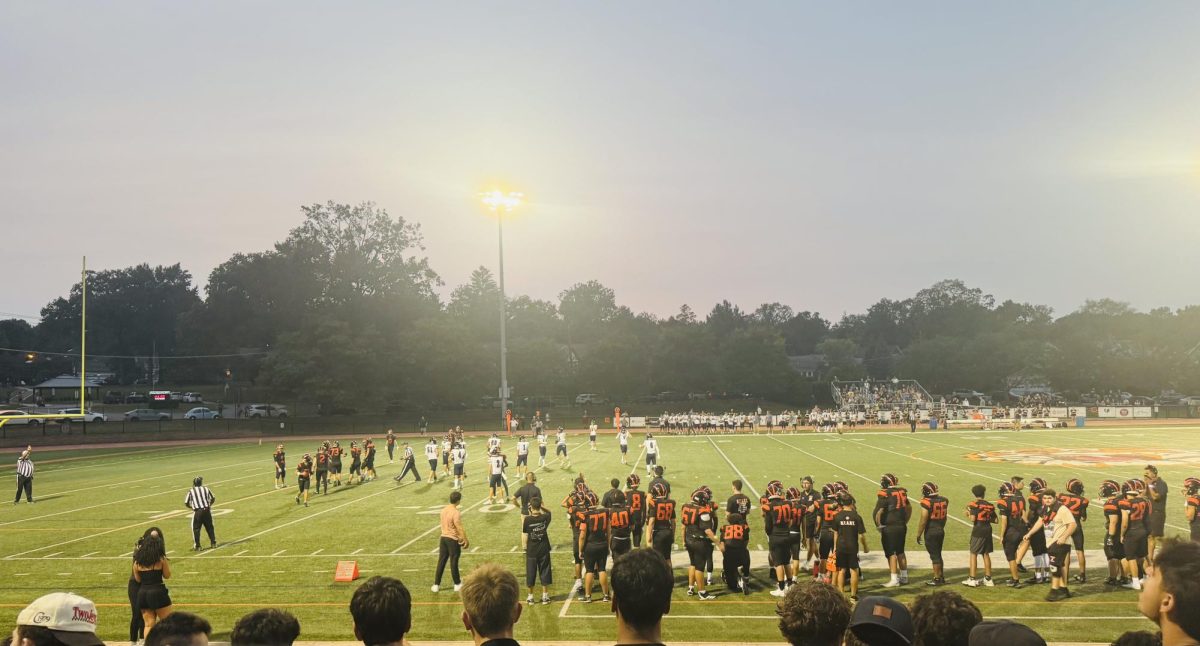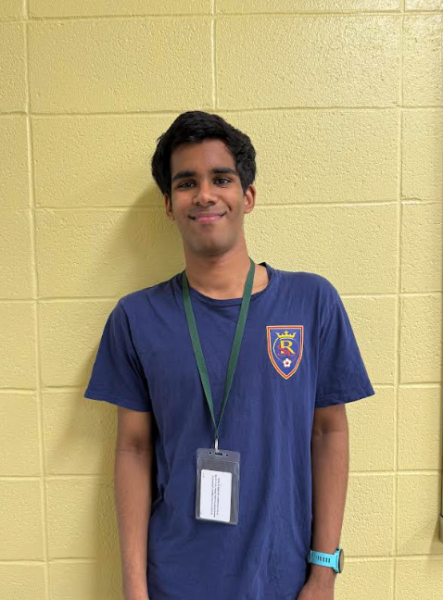Long awaited by commenters on Instagram posts, Manchester United’s ex-Manager Erik ten Hag has finally been sacked. After United’s 1-2 defeat against West Ham, ten Hag, the 54-year-old Dutchman, was let go by the Manchester United owners, naming United’s former assistant manager—Ruud van Nistelrooy—as the new interim manager.
Manchester United is a well-known name in the soccer world, as they have had a long history of successful seasons and winning trophies. They have been in the Premier League, England’s top soccer division for 50 years in a row, being relegated to the second division only four times in their entire history. Between 1986 and 2013, under the reign of legendary manager Sir Alex Fergusen, Manchester United won 38 trophies, including 13 Premier League titles, five FA cups, and two UEFA Champions League titles.
After retiring from managerial soccer in 2013, Sir Alex Ferguson left big shoes for the next Manchester United manager to fill. Unfortunately, as time would come to tell, Manchester United’s owners and executives were not able to find someone to adequately replace Sir Alex Ferguson. Having had cycled through seven different managers after Ferguson’s ultra-successful 26-year managerial reign, with managers like Jose Mourinho finding short spurts of success (by winning the UEFA Europa League but ultimately leaving the team), Erik ten Hag came into the job looking to bring Manchester United back to their winning ways.
Early Successes and Promising Beginnings
Erik ten Hag was born on February 2, 1970 in the Netherlands. Ten Hag, like many other professional managers, had a professional soccer career. Throughout his career, he stayed in his home country and played at the center-back position for many Dutch teams, including FC Twente and FC Utrecht, winning a few domestic titles. Although his career as a player was nothing special, ten Hag found managerial success from the start of his career as a manager.
Ten Hag’s first opportunity as a head coach came in 2012, when he took over as the head coach for the Go Ahead Eagles. He led this team to promotion from the second-highest division in the Netherlands to the highest domestic league in his first year, an impressive feat for any manager. He then led his next team, Bayern Munich II, to the Regionalliga Bayern title. After relatively quiet yet solid seasons at Utrecht in the top Dutch league, ten Hag finally signed for Ajax—the start of his managerial career at the top level of professional soccer.
Before joining Manchester United, ten Hag established himself as one of Europe’s most promising managers during his time at Ajax from 2017 to 2022. Under his leadership, Ajax thrived both domestically and in European competitions. Ten Hag’s emphasis on developing young talent and developing a unique high-press style transformed Ajax, leading them to win multiple Eredivisie (the top league in the Netherlands) titles and make a remarkable run to the 2019 UEFA Champions League semi finals. The team, featuring young stars like Matthijs de Ligt and Frenkie de Jong, defeated European giants such as Real Madrid and Juventus before a last-minute loss to Tottenham Hotspur in the second leg of the semifinals, ending their Champions League campaign.
Ten Hag’s success at Ajax mainly linked from his ability to develop young talents in addition to using versatile players and adaptive formations allowed Ajax to compete at the highest level on a relatively modest budget compared to other top clubs such as FC Barcelona, Paris-Saint Germain, or Manchester City. The Manchester United executives found promise in ten Hag’s work with his previous teams, and decided to give ten Hag the job as the main manager for Manchester United in the 2022-23 season.
Ten Hag’s Challenges and Decline
Ten Hag was far from the worst manager at Manchester United. In fact, ten Hag led the team to a top-four finish in the Premier League (England’s top-flight league) in his first year. Additionally, he won the EFL Cup in his first year with a 2-0 win over Newcastle. Although a minor trophy, it was Manchester United’s first trophy since 2017. In ten Hag’s second year managing Manchester United, he faced many struggles with the team. Manchester United ended up performing poorly in many tournaments, including the EFL Cup (which they had won last year) and the prestigious UEFA Champions League (the biggest competition in European club soccer). They also finished eighth in the Premier League, the team’s lowest finish since the 1989-90 season.
Even through these strugglers, ten Hag won the FA Cup against Manchester City, winning Manchester United another trophy in ten Hag’s reign. After this victory, ten Hag had words to say to his doubters.
“Listen, we won, the last two years, behind Manchester City, the most trophies in English football, so we performed already the last two seasons,” United’s manager said. “And listen to me, that is the reality, they are the facts.”
Unfortunately for ten Hag, it seemed as if his accomplishment of winning two trophies with Manchester United weren’t enough to convince the executive board of ten Hag’s managerial prowess. The main problem seemed to be that the team was investing so much of their money into world-class players such as Bruno Fernandes, Diogo Dalot, and Marcus Rashford, yet getting poor results in return. Ten Hag faced brutal criticism from his fans, especially on different social media platforms, and eventually couldn’t back his case any further.
Ten Hag’s sacking came amidst a string of losses to numerous teams in the most recent 2024-25 Premier League season. These results include Premier League losses to Brighton, Liverpool, Tottenham, West Ham, and UEFA Europa League draws to Enschede, Porto, Fenerbahce. When ten Hag left the team, Manchester United had a losing record of 2-3-4 in the Premier League, and a mid-table team in the UEFA Champions League.
Looking Ahead
Manchester United is currently navigating a challenging phase as the team faces both on-field struggles and financial constraints off the field. Following a series of inconsistent performances that led to ten Hag’s dismissal in late October, Manchester United appointed Ruben Amorim as the new head coach, even though he wasn’t the official head coach until November 11. During the summer, Dutchman Ruud van Nistelrooy stepped in as assistant coach to the then head coach, Erik ten Hag. After ten Hag was sacked, van Nistelrooy became United’s interim manager, and has brought renewed energy and structure to the team, guiding them during this challenging period.
Under van Nistelrooy’s leadership, Manchester United played a total of four matches and has achieved some noteworthy performances, including a 1-1 draw against Chelsea on November 3rd and a commanding 5-2 win over Leicester City on October 30. Van Nistelrooy emphasized the players’ commitment and highlighted standout performances, especially from seasoned players like Casemiro, whose influence on the pitch during matches and in training has been critical to stabilizing the United squad.
Overall, van Nistelrooy’s influence, despite temporary, is visible in the team’s fight for performing at the highest level again and for dominating England’s top-flight league. Reflecting on his role, he mentioned how special it felt to return to Old Trafford, now as a coach, after his memorable playing career with the club. In a press conference reflecting on his new role, van Nistelrooy shared the significance of returning to Old Trafford, where he enjoyed a celebrated playing career. “It was special to come back to this club and to the city I liked and I loved so much and still do,” he expressed, underscoring a personal connection that drives his commitment to the club. “I enjoy being around Manchester, I enjoy working with the players and staff here,” he added.
As Ruben Amorim took over as Manchester United’s head coach on November 11, his main goals will be to improve the team’s consistency and bring in a clear, aggressive style of play. Building on the efforts of interim manager Ruud van Nistelrooy, who helped the team refocus after ten Hag’s departure, Amorim will look to make the most of the squad without much budget flexibility for new players.
Amid ongoing uncertainties about club ownership, Amorim’s task will be to keep the team competitive and stabilize United’s position in the Premier League, setting a solid direction for the future.















































































































































